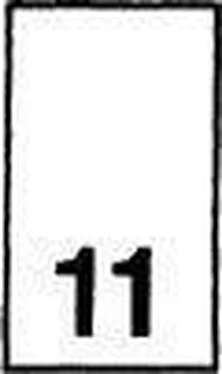These days, the irritant that made Carlo angry most frequently was the existence of José Ospina. Four years ago on a summer afternoon Balacontano had arrived at the weight table to see the usual gaggle of prisoners wearing the thick leather belts cinched around their middles to keep their guts from popping out, straining to raise the heavy weights above their heads and curling the small barbells to make their already-bulging forearms look like ham hocks. He had sat down at the table, pulled the little red string to open the cellophane on his new deck of cards, removed the jokers and begun to shuffle. Then he had looked up to see a tall, dark young man with curly black hair and eyes like a cat sit down across from him. The man had his shirt cut off at the sleeves to reveal bony arms decorated with strange greenish tattoos. They were pictures of some sort of vegetation. They didn’t look like natural plants; they seemed almost architectural. Most maddening of all, they looked familiar. Carlo Balacontano didn’t recognize the tattoos until José Ospina had set his cards down on the table and whispered, “Gin.” Then he had taken off his shirt and Bala had found himself staring at the face of Benjamin Franklin. The tattoos were the flourishes and scrollwork engraved on a hundred-dollar bill.
From that day onward, José Ospina proceeded to ruin Carl Bala’s life. Carl Bala was rich: even now in New York there were large, quiet men who spent all their time driving big, heavy cars to various places of commerce to collect his rake-offs, percentages and tributes. He was also famous, in the way that mattered. Even here, three thousand miles and eight years away from the scenes of his triumphs, he could have walked into a hotel on the shore of the Pacific and taken the best suite in the place on the strength of his name. But that was in the outside world, and Carl Bala wasn’t living in the world. He was in a small, sun-bleached federal prison twenty miles into the dry yellow countryside of central California, hedged between jagged, impassable stone mountains that rose abruptly from the valley floor to the east and broad, open lowlards that stretched to the sea on the west; twenty miles of sparse, ankle-high weeds with every mile or so a crabbed, tortured live oak tree ro more than eight feet tall to provide the only shade.
In this place, meeting José Ospina was like watching a cockroach scurrying off his dinner plate. At first he had been a shock, but Carl Bala had tried to reconcile himself to it. Then, day after day, he had sat and felt the sting as the young man, looking a little bored, had set his cards on the weight table before him and said in his soft voice, “Gin.” Even worse, there were times when José Ospina would watch Balacontano discard once, then pick up his cards, fan them out, close the fan and say, “I’ll knock with ten.” Or eight or three. And Carlo would be frantically leafing through his brand-new hand, staring at the face cards, aces and tens he hadn’t had time to count up, let alone unload.
Stacked decks Carl Bala could have understood, but these things happened when José Ospina hadn’t so much as cut the cards. Palming and substituting a whole hand was not unheard of on the planet Earth, but José Ospina always played with the sleeves cut off his shirt, the flourishes of scrollwork copied from the currency of the United States visible running up his bare arms. He had no place to hide extra cards, no way of cheating at all. José Ospina was lucky. Admittedly he was a pitiless, competitive, supernaturally alert gin player, but the immutable forces of probability and chance simply kissed him on the forehead and passed by him each day to settle with their customary ferocity on the shoulders of Carl Bala. Bala found himself living in this little penal outpost where the only pleasure permitted him was winning at gin, something that happened so seldom now that when it did it felt like mockery.
Carlo had used his status in the prison underground to find out what he could about José Ospina, and had obtained a copy of Ospina’s official file. He had learned that José Ospina had been transferred to Lompoc after two years of good behavior at Marion, Illinois, where he had been serving five to ten on a conviction for possession of counterfeit money and an arsenal of automatic weapons, including an M-60 machine gun. Under “Distinguishing Marks and Scars” was a description of the greenish tattoos, which the prison rumor establishment later told Balacontano had been done in Marion by Ospina’s partner, a talented engraver named Cardero. Under “Place of Birth” was the entry “Lexington, Kentucky,” suspicious since Ospina had a thick Spanish accent. But when he double-checked “Eye Color,” the form said “hazel,” the category in which the United States government placed all colors other than brown or blue. Ospina’s eyes were certainly not blue or brown; they were bright golden yellow, which was to say “hazel.” There was no sign that he was a card mechanic or a gambler or even intimate with gamblers. So Carlo had concluded that Ospina was merely riding a streak of luck like the vein of gold under Sutter’s mill, long and deep, but still finite, and he had decided to wait it out.
He had been waiting it out for three and a half years of frustration and simmering anger, having run up a tab of $344,000 in the process. In that time he had stepped up his purchases of decks of cards, sometimes bringing out a fresh one twice in a single day. He had also been treated by the prison doctor for an incipient ulcer and given a rubber mouthpiece to keep him from grinding his teeth while he slept. In 1958, when all of the East was at war over territory and dominance, and every three days somebody was found mutilated in the trunk of his car or broke loose from his anchor and popped to the surface of a river, Carl Bala had been able to eat heaping plates of hot sausage and peppers, then sleep like a hibernating bear. But not now; the effort of containing the anger had begun to threaten his robust constitution. The only release he had for his hatred was to send messages to his employees, subordinates, relatives and colleagues who lived in the outer world, demanding that they find the man who had framed him and get him out. Lately his demands had become more urgent, the implied rewards more princely and the veiled threats more dire. There were already those who believed that, like others before him, Carlo had gone mad in prison. But a madman with untold millions of dollars might overspend to reward those who humored him, and nobody doubted that, mad or not, Carlo Balacontano would be capable of finding strong hands to carry out any form of revenge that stayed in his agitated imagination long enough to turn it into words.
These threats had become particularly worrisome to some of the lieutenants who were now serving as stewards and trustees of his empire: Giovanni “John the Baptist” Bautista, Antonio “Tony T” Talarese, Salvatore Callistro, Peter Mantino. These men had covered themselves in advance by mentioning Carl Bala’s mad desires with exaggerated seriousness to their soldiers at more frequent intervals as the years passed and Balacontano’s parole was becoming more easy to imagine. Bautista and Mantino had also quietly discussed the possibility that if the culprit didn’t turn up before the old man’s first parole-board hearing, it might be inconvenient or even suicidal to let him walk out of prison alive. Talarese had come to the same conclusion independently, spurred by the possibility that the old man might figure out that Talarese had been stealing some of the profits.
Carlo Balacontano had intuited much of this, and informers had kept him abreast of the rest. He could easily have taken his revenge from the prison yard, but he needed these men for now. Thinking that they were working to fill their own pockets, they were amassing a greater hoard that he would come back and reclaim later. But he needed their memories more than their greed. They were all old enough to have seen the man he wanted. The young wise guys, the little weasels who were so eager to sell their bosses to the imprisoned chieftain and take over their fiefs, were too young. The Butcher’s Boy hadn’t been seen by anyone in ten years.
Читать дальше












